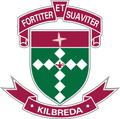English

Debating
In recent weeks, students from Years 7 to 10 have been both finishing up and starting their debating seasons.
The Year 10 debaters competed in their last round on 27 July. They faced the challenge of competing in a ‘secret’ debate, in which students have one hour to develop arguments and prepare speeches in response to an unseen topic. On this occasion, students argued in the affirmative that ‘all Australians should be given access to free wi-fi in their homes’ – a highly pertinent topic given our current state of affairs, made even more relevant as the debate was conducted virtually! We congratulate all members of the Year 9 and 10 Debating Teams in what has been a very challenging year.
The DAV Junior Debating Competition has also recently begun. It is a fantastic opportunity for students wanting to learn more about debating and get involved in the Intermediate and Senior Debate Teams in later years. Eight enthusiastic Year 7 and 8 students have enrolled in the program, which involves training sessions and three interschool ‘friendly’ debates run in the evenings, where students get to put their new knowledge and skills to the test. Due to lockdown, these debates are being run remotely, and whilst this is a little intimidating, we are proud to report that both of our teams came away with wins for Round 1 against Haileybury College, arguing in the negative that ‘AUSLAN should be compulsory in all Australian primary schools’. This was an excellent effort and a testament to their hard work and collaboration.
Kilbreda Chronicle
During last term, a group of dedicated Year 8 to 12 students began work on the next edition on the Kilbreda Chronicle, our student-led newspaper. Armed with ideas and energy, they composed a range of written texts, such as reviews, opinion pieces, advice columns and even creative writing. Working for the Kilbreda Chronicle has offered students the opportunity to refine their planning, writing and editing skills, thinking always about their target audience (their peers) and how to complement their writing with engaging visual image. They have showcased admirable team work skills, openness to others’ ideas and a willingness to knuckle down to get work done out of school hours. They are commended for their efforts!
Studying English, whether it be mainstream English, Literature or English Language, is a rewarding academic discipline that encourages critical thinking, engagement with real world issues and rigorous and challenging classroom discussions. When studying English remotely, we try to translate all these things to the online world – sometimes we succeed, sometimes we may not but we thank all our students for going on this journey with us.
Below are some reflections from Year 12 English, English Language and Literature students about studying English remotely.
Kim Elliott and
Fiona McDonald
Learning Leaders:
English
Student Reflections
I find lockdown a bit challenging as I like learning in an environment where all the class can contribute to conversations and share ideas and new ways of thinking about things, particularly texts, with each other. I am finding as I read and study our comparative texts that the isolation that the citizens in Salem in 1692 and Dungatar in the 1950s faced is a similar sort of experience to what we are going through now, with not much to do and being confined to our homes. Hopefully our experience won’t end as (spoiler alert!) disastrously as it did for them!
I think many of us can agree that it’s tough to keep motivation levels high in times like these and, being in Year 12, we still have the pressures of SACs and exams at the end of the year and being prepared for these when these come around. Therefore, I find ‘Hour of Power’ really useful in general, but particularly during lockdown as it provides you a way to hand write essays to time, which is hard during lockdown when everything is digital. I also find this provides the opportunity for you to do at least one practice piece a week, as I sometimes struggle to find time to sit down and do a practice piece or I make excuses not to do it when I don’t particularly feel like it. Hopefully we’ll be back soon to have our final weeks of school before we finish back on site!
Roisin Tobin
Year 12
English student
Whilst it has been a challenge to transition back to remote learning during VCE, English Language has still provided us with an engaging, yet different learning experience. We have still been able to practise writing to time and have been provided with many opportunities to gain feedback through doing practice pieces either in class, out of class or during ‘Hour of Power’. Ms McDonald has also been providing us with a metalanguage quiz at the start of the lesson which assists us in our revision in the lead up to the exam. We have been able to work together and brainstorm for essay topics through the channel function in Microsoft Teams, which I have found to be really valuable.
For English Language students there has definitely been a silver lining in this lockdown due to the many press conferences and public debates. This has given us greater opportunity to discuss language features in the media and most of all add to our contemporary examples which we will be able to use in our exams!
I feel grateful for all the effort that has gone into ensuring we are still provided with many opportunities to enhance our knowledge and skills in English Language.
Laura Mitchell
Year 12
English Language student
It’s quite fitting that all of the texts we have been studying this year, 'The Golden Age', 'The Dressmaker' and 'The Crucible', heavily incorporate the theme of isolation and the hysteria/unpleasantness that can ensue when one person or a community is isolated.
However, they also suggest isolation’s ability to reveal individuals’ true passions and what’s truly important in life. Having the time to just be with myself has allowed me to learn a lot about who I am, who I want to be and what I want to do moving forward, as well as to connect to people I might not have previously, sort of similar to how Frank Gold found his vocation for poetry through Sullivan in the Iron Lung ward (though with the threat of COVID rather than Polio).
Sophia Bryant
Year 12
English student
Although it has been challenging to study English remotely, the extra time we have in lockdown has given us an opportunity to spend more time sharpening our skills and noticing little aspects of the text we otherwise would not have.
Rhiannon Duffy
Year 12
English student
Studying English online has taught us all to adapt, become more flexible, and accommodate to the new ways in which we were required to study our texts. Despite the first few lessons being filled with awkward silences and images of our blank, pigtailed faces staring back at us, it wasn't long before we all began to share ideas and work together to study 'The Crucible' and 'The Dressmaker'. The use of breakout rooms was an effective way to get together with our peers and talk about the issues, themes and ideas that both texts presented us with.
Whilst studying English remotely has presented its challenges, we have all learned how to think outside the box and become more creative in our ways of learning; both of which will hopefully assist us with our essay writing in the coming weeks!!
Madison McCahon
Year 12
English student
What’s good about it?
Being given more time for personal interpretation of our texts as we have more time for ourselves, then once we meet being able to share our thoughts and ideas with each other and gain a deeper understanding of each other’s perspectives and interpretations.
What’s hard about it?
As we have more time for ourselves it becomes difficult to stay motivated to study and prepare for upcoming sacs and exams.
Some of my favourite books we have studied during remote learning:
- 'Will You Please Be Quiet, Please?' - Raymond Carver
- 'Frankenstein' - Mary Shelley
- 'Ariel' - Sylvia Plath
Rosie Egan
Year 12
Literature student
This term, our class 7.73, has been reading and studying the novel ‘Runner’ by Robert Newton. Whilst we started the novel at school, Victoria went, yet again, into lockdown, meaning we had to continue learning the novel remotely. While in lockdown, 7.73 has been learning about ‘Runner’ in unique and different ways as opposed to onsite learning. We’ve been reading virtually to each other, having team channels to discuss and analyse the novel and have been correcting some of our work together as a class. From my perspective, I have found studying this novel in remote learning fun and different as it gives us all a different experience, especially since this is the first time we’ve all studied a novel in secondary school.
Overall, I think ‘Runner’ is a good read that covers the historic perspective of a working-class community in Richmond, Melbourne, in a society of conflicting and difficult times, narrated to us by a teenage boy, around our age. It was a great novel to study remotely and I’m disappointed that this unit of work on ‘Runner’ is coming to an end.
Rhiannán Marie-Jeanne
Year 7
During the past weeks of lockdown studying English remotely has had its challenges and difficulties. However, we have coped with the support of the staff and our fellow peers. In English we have been studying the book ‘Runner’ written by Robert Newton. We found the novel to be quite a boring story in the beginning, but towards the end it was really interesting and had a suspenseful and happy ending. After using most of our lessons reading the book together as a class, we discussed things about the novel and reflected on it.
We now have started our assessment piece. Our assessment task is to write and perform a monologue, and we have to do it based on a character in the story that we have picked. As we cannot perform this monologue in class, we are to put a video onto a website called ‘Flipgrid’ to be assessed.
Kassedy Mazur,
Sienna Diacoyannis and0
Elizabeth Jones
Year 7
